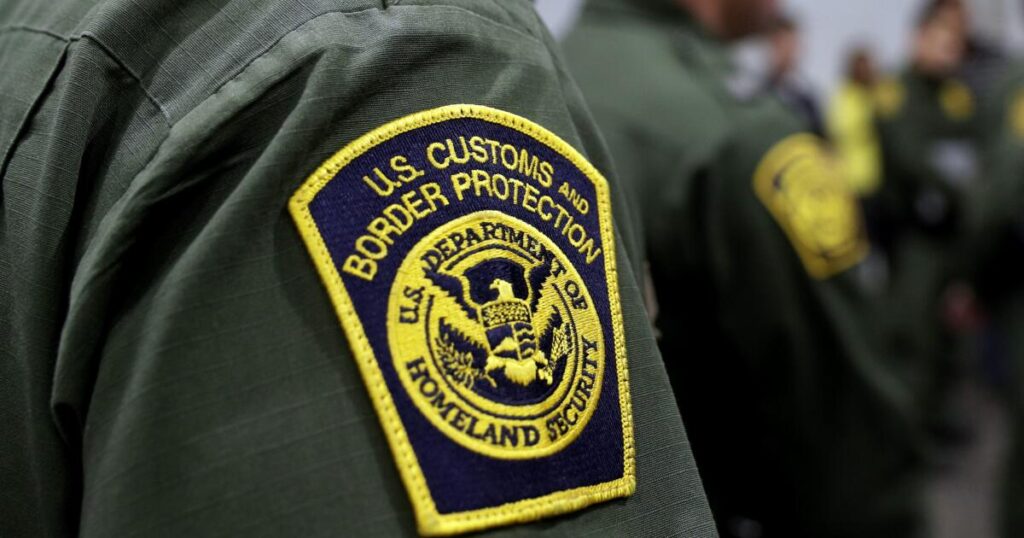For some, it’s as routine as paying at the checkout counter. For others, it’s as nerve-racking as a root canal. Which experience you have depends largely on one thing: where you were born.
We’re talking about international travel.
Since President Trump took office, Western travelers trying to enter the United States have been getting a taste of what it can be like to be a traveler from the Global South. German tourist Lucas Sielaff was handcuffed and shackled at the border in Tijuana, held in detention for 16 days and then deported at his own expense, apparently because he misspoke when questioned in English, not his first language. A second German tourist and a Canadian on a work visa were stopped at the same border and detained for more than six weeks and 12 days, respectively, without explanation. Fabian Schmidt, a third German and green card holder, was stopped at Boston Logan International Airport and reportedly subjected to harsh interrogation tactics and shoved into a cold shower, naked. He was sent to a detention facility in Rhode Island, where he remains, without clear charges. Another incident involves a French scientist denied entry reportedly because messages critical of Trump were found on his phone.
The United States has a visa waiver program: Citizens of 43 nations — including longtime allies Britain, Germany, Canada and France — are allowed to enter the U.S. and stay for up to 90 days without a visa. But after the recent border incidents, Britain and Germany updated their U.S. travel advisories with warnings that the welcome mat is being withdrawn. For travelers used to strolling past immigration counters without hassles, this is a new paradigm.
But for travelers with “weak passports,” struggling to cross borders has long been a fact of life.
If you are from, say, Bangladesh or Tanzania and want to visit another country, including the United States, you will be figuratively, if not literally, stripped naked like Schmidt. You’ll likely be grilled on your job, finances, family, past travel and even your social media posts. You will need to plan far ahead, as it can take months, even years to get a visa interview.
According to the latest data, the wait times for an interview for a visitor visa to the U.S. in, for example, Bogotá, Colombia; Dhaka, Bangladesh; Lagos, Nigeria; and Mexico City are 507, 228, 377 and 350 days, respectively. If you get an appointment, you’ll find yourself at the mercy of a consular officer who decides whether or not to approve your visa application. If your visa is refused, you’ll be handed a boilerplate notice stating that the decision is final and cannot be appealed. What you’ll not receive, of course, is a refund for the hefty application fee you’ve already paid.
Things are set to get even worse for some potential travelers to the U.S. The Trump administration reportedly is planning a new edition of the infamous Muslim ban, which resulted in chaos at airports, protests and lawsuits during Trump’s first term. The new travel ban could target 43 countries, more than half of them in Africa. Many Americans will be OK with that, as the right of sovereign nations to set their immigration policies as they see fit is rarely questioned. This is because international travel is seen as a privilege rather than a right. But is it?
Any other policy that unfairly disadvantages people based on characteristics over which they have no meaningful control, such as their ethnicity, race, sex, gender, religious upbringing or native language, would rightly be deemed unacceptable. Why, when it comes to borders, do we accept policies that blatantly discriminate against people on the basis of where they were born? The world is more interconnected than ever, and the ability to move freely is essential to taking advantage of the professional, educational and personal opportunities created by globalization — it should not be determined by a person’s place of birth.
Open borders aren’t politically feasible now, but what is possible is resistance to the temptations of xenophobia and nationalism in the U.S. and parts of Europe. More liberal border policies are not only moral, they also benefit receiving nations by fostering economic growth, tourism, innovation and understanding among cultures.
Since 2018, Rwanda allows citizens of all countries to obtain a visa upon arrival without prior application, and Samoa doesn’t require a visa at all for stays of fewer than 60 days. Even China, historically known for its strict border policies, is making strides toward more inclusive immigration rules and opening its doors wider to foreign visitors. It has mutual visa exemption agreements with 23 countries, and since 2023 has been implementing a series of unilateral visa-free policies. Initially, only six countries were covered, but this list has since grown to include 38 countries whose citizens can enter China visa-free for business and tourism for up to 30 days.
Rwanda, Samoa and China are proving that a more open world is not only possible but beneficial. They’re setting a positive example that the so-called free world would do well to follow, instead of building ever-higher walls. The ability to travel freely should not be a privilege reserved for the lucky few but a right — a recognition of our shared humanity and the interconnected world we live in.
Rainer Ebert is a research fellow in moral philosophy at the University of South Africa. Guaiqiong Li is an assistant research fellow in African studies at Yunnan University in Kunming, China.

